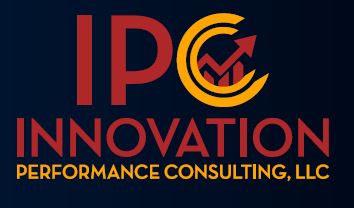
Securing a well-paying job without a formal degree has long been a challenge, but the landscape is shifting in today’s dynamic economy. With the rising costs of higher education, forward-thinking organizations are increasingly embracing skills-based hiring, prioritizing candidates’ capabilities over formal credentials. This paradigm shift allows individuals to achieve their career goals with certifications that validate their job-relevant skills. Reputable institutions, such as the HR Certification Institute, play a pivotal role in this movement by rigorously assessing candidates through comprehensive examinations designed to test practical expertise.
Certification programs offer a more focused, cost-effective alternative to traditional four-year degrees, enabling organizations to tap into a broader, more diverse talent pool. Companies adopting skills-based hiring are achieving outstanding results by breaking away from outdated methods that exclude 62% of Americans who lack a college degree (Sigelman et al., 2024). Research consistently demonstrates that skills are a stronger predictor of job performance than traditional metrics like years of experience or formal education (Hunter & Hunter, 1984). This innovative approach is redefining hiring practices and proving to be effective in today’s competitive workforce.
Skills-based hiring evaluates candidates based on job-specific skills rather than formal qualifications, degrees, or titles. This approach emphasizes the practical competencies directly applicable to the role and allows employers to cast a wider net for potential talent. Talent acquisition departments with a skill-based hiring philosophy are reaping the benefit because what is considered relevant experience or the right degree for a job today is quickly becoming obsolete in a VUCA (volatile, uncertain, complex, and ambiguous) market. Candidates with matching technical skills for a specific job tend to fare better than those with formal degrees (Hunter & Hunter, 1984).
Relying solely on education and experience for hiring decisions does not necessarily ensure a competent and productive workforce. Skills-based hiring, by contrast, offers a more practical and effective approach. Below, I will outline three key benefits of adopting skills-based hiring practices and how to implement them. Skills-based hiring not only ensures equal opportunities by removing barriers like degree requirements, making roles accessible to a broader and more diverse talent pool, but it also drives measurable improvements in organizational performance
Job Performance
Research shows that skills-based hiring is a stronger predictor of job performance (Hunter & Hunter, 1984). Skills-based hiring is an effective predictor because it directly assesses a candidate’s ability to perform job-specific tasks or demonstrate relevant competencies. Traditional hiring methods, such as education or years of experience, often include extraneous factors that do not directly contribute to job performance. Skill-based hiring eliminates this by focusing only on the skills required for the role. Beyond enhancing individual performance, skills-based hiring also plays a critical role in improving organizational efficiency by reducing turnover.
Reduced Turnover
Through better job fit, skills-based hiring significantly reduces turnover and makes time-to- hire faster through a broader talent pool. Research analyzing 31 case studies across multiple industries found that turnover costs average 39.6% of an employee’s annual wage (Bahn & Cumming, 2020). To put this into perspective, replacing an employee earning $50,000 annually could cost an organization approximately $19,800. This highlights the significant financial impact of turnover, with nearly $20,000 in costs for each employee who is replaced at this salary level. It underscores the critical importance of employee retention as a strategy to reduce costs and maintain organizational efficiency. Regardless of the organization’s size, such figures are bound to capture the attention of HR managers.
Diversity and Inclusion (D&I)
Skills-based hiring creates opportunities for underrepresented groups, fostering a more inclusive and equitable workforce. While D&I initiatives may be polarized in the current political climate, the business world ultimately prioritizes financial performance over political ideologies. Executives prioritize decisions that drive long-term profitability and sustainability. The economic advantages of D&I are well-established, with extensive research highlighting their impact on business success. For instance, McKinsey’s Diversity Wins report (Fyle et al., 2020) found that companies in the top quartile for ethnic and cultural diversity on executive teams were 36% more likely to achieve higher profitability than their industry peers, underscoring the tangible value of D&I.
Implementing Skills-Based Hiring
- Audit and redesign job descriptions: Focus on the must-have skills for the role rather than degrees, years of experience, or specific job titles.
- Use clear, measurable language: Define required competencies, such as “proficiency in Excel for financial analysis” instead of “bachelor’s degree in finance.”
Conclusion
As the workplace continues to evolve, adopting skills-based hiring as a core talent acquisition strategy is essential for organizations aiming to stay competitive. By focusing on candidates’ abilities rather than their credentials or past roles, businesses can build a dynamic, innovative workforce equipped to tackle future challenges and drive growth. Moreover, skills-based hiring promotes diversity, fostering equity and inclusion while delivering a measurable competitive advantage in today’s marketplace. Ready to transform your hiring practices? Start by auditing your job descriptions today.
References
Bahn, K., & Cumming, C. S. (2020). Improving U.S. Labor Standards and the Quality of Jobs to Reduce the Costs of Employee Turnover to U.S. Companies.
Fyle, S. D., Hunt, V., Dolan, K., & Prince, S. (2020). Diversity Wins: How Inclusion Matters.
Hunter, J. E., & Hunter, R. F. (1984). Validity and Utility of Alternative Predictors of Job Performance. Psychological bulletin, 96(1), 72-98.
Sigelman, M., Fuller, J., & Martin, A. (2024). Skills Based Hiring: The Long Road From Pronouncements to Practice. Harvard Business School.

